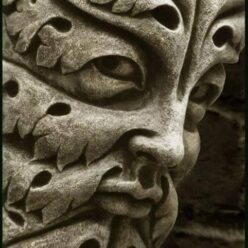As I do research on atheism and cognition, I am finding all kinds of wonderful things.
For discussion and reference, here’s a list of cognitive biases from “Born to Believe” by Andrew Newburg and Mark Robert Waldman.
The first bias made me snort. Now why didn’t I think of that?
- Family bias. We are more likely to believe what our family members tell us.
- Authoritarian bias. We are more likely to believe what authority figures tell us.
- Attractiveness bias. Why are crippled ugly people not used in advertising? We are more likely to believe what nice looking people tell us.
- Confirmation bias. The text for this bias, in its quiet, unemotional way, speaks volumes, so I am going to quote it directly. “We have a tendency to emphasize information that supports our beliefs, while unconsciously ignoring or rejecting information that contradicts them. Since beliefs become embedded in our neural circuitry, contradictory evidence often cannot break through the existing connections of the brain.”
- Self-Serving Bias. That’s kinda obvious. If this information suits me, I will like it better, I will believe it.
- In-Group Bias. People we like get preferential treatment (the ‘hall pass’ of song and legend) when it comes to their beliefs.
- Out-Group Bias. We discount the beliefs of others outside our group.
- Group Consensus Bias. If everyone around you agrees with you, the more likely you will be to assume that your beliefs are valid.
- Bandwagon Bias. If you walk into a room full of people who believe something, the more likely you will be to tailor your beliefs to theirs. Frequently seen in Vancouver during playoffs.
- Projection Bias. Everybody thinks like you. (Except when they don’t, and your projection gets you into serious crap).
- Expectancy Bias. The reason double-blind studies were invented; you’re trying to learn what is THERE not what you EXPECT to be there
- “Magic Number” Bias. Guilty!! Your brain, unless you are very cognitively disturbed, is designed to do math. Big numbers make for big emotions, and emotions help code beliefs. It’s all very neatly intertwingled, isn’t it?
- Probability Bias. “Never tell me the odds” as Han Solo once famously remarked. Particularly prominent cognitive bias in teenagers and gamblers. This bias causes you to believe that you are luckier than others. Bias aside, in my case, it’s true.
- Cause-and-Effect Bias. Oh, sugar. Wish I had a buck for everytime nautilus3 called me on this bias; I’d be living in the British Properties. Since our brains love to see a cause for an effect, without necessarily understanding all the factors that went into that effect, humans consistently bugger up what caused what.
- Pleasure Bias. Pleasure = a higher truth.
- Personification Bias. Things get names and personalities. Unidentified incoming information gets ‘turned into’ something. Raw data does NOT stay raw for very long.
- Perceptual Bias. We assume that what we think, perceive and believe is somehow an objective reflection of the world. Beeg misstek.
- Perseverance Bias. Once it is in, it doesn’t come out without effort. A belief ingrained in our neural circuitry, bolstered by habit, in-group bias, family bias, what have you, is freaking near impossible to get out. In my view it will not come out without psychological trauma.
- False-Memory Bias. I had no idea that false memories stay in the brain longer than true ones. This accounts for many events in my life that were simply impossible to explain at the time they happened.
- Positive-Memory Bias. When we look back, it’s better, brighter and happier.
- Logic Bias. If you think it’s logical you’re more likely to believe it. I personally think this lays over logic a meaning a professional philosopher would find scandalous. The authors quote William James: “As a rule we disbelieve all the facts and theories for which we have no use.”
- Persuasion Bias. Great speakers who emote get our poor old cognitive goat. If you look at the difference between a Baptist minister and a scientist presenting findings…. yeah.
- Primacy Bias. Allegra gets more kicks at the can than Zoe. Information at the top of the list is more easily remembered and more heavily weighted.
- Uncertainty Bias. Human beings do not enjoy uncertainty. People prefer to believe or disbelieve something and get out of the nasty feeling that accompanies uncertainty.
- Emotional Bias. Anger means I’m right, depression means I can’t see the positive, and anxiety means I’m wrong.
- Publication Bias. Wow, it was printed, so it’s true. The authors say that editors are biased towards positive rather than negative findings, but that bias must stop at the newsroom door.
- Blind-Spot Bias. The worst bias of all. The knowing that we don’t have biases, never fall prey to them, and can readily identify them in other people without seeing the humor in that.
Now don’t get me wrong, cognitive biases all serve us biologically, as individuals. Where they get wacky is when they get writ large onto public policy. Anyway, this book is providing LOTS to think about, and I also got The Essential Rumi by Coleman Barks with John Moyne (burst into tears on the first page, I’m SUCH a sap), Hardcore Zen by Brad Warner (punk rocker + Buddhism), and Spark (why exercise is important to cognition) by John J Ratey with Eric Hagerman. Can ya tell what my cognitive biases are from this small sampling???
